Skin cancer is the most common form of cancer in the UK, with over 400 people being diagnosed every day. There are three main types of skin cancer, basal cell carcinoma, squamous cell carcinoma and melanoma. The first two are both known as non-melanoma skin cancer and are the most common varieties.
Non-melanoma skin cancer refers to a group of cancers that slowly develop in the upper layers of the skin and are the most common forms. These are identified by a lump or discoloured patch on the skin. Melanoma is less common and can be more serious and aggressive as it can spread to other organs in the body. The most common sign of melanoma skin cancer is changing moles.
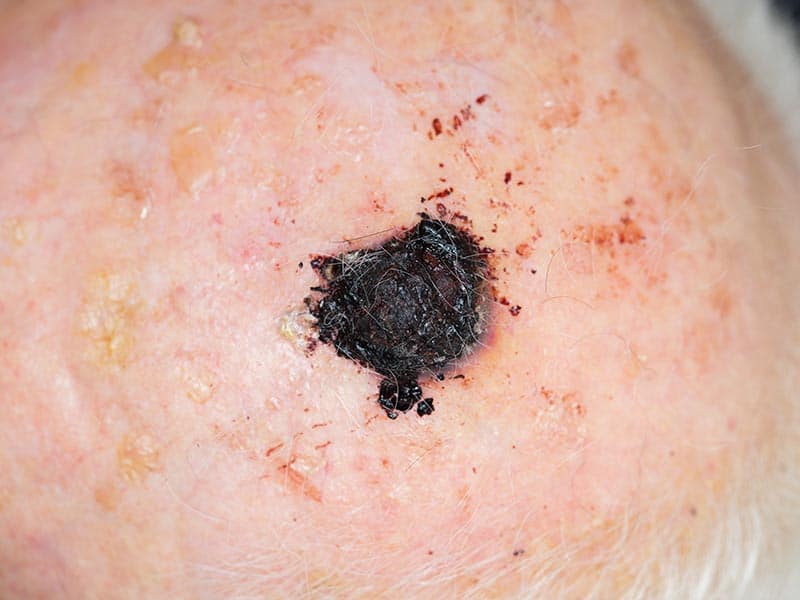
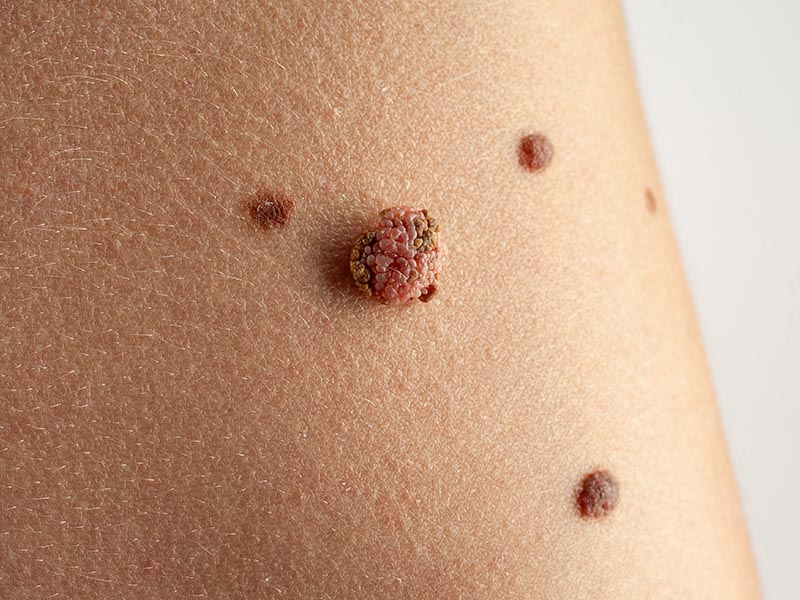
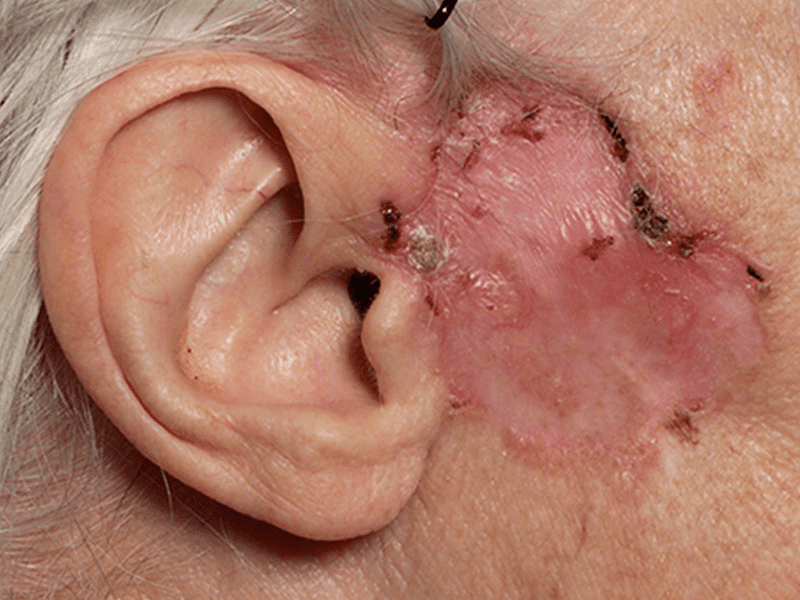
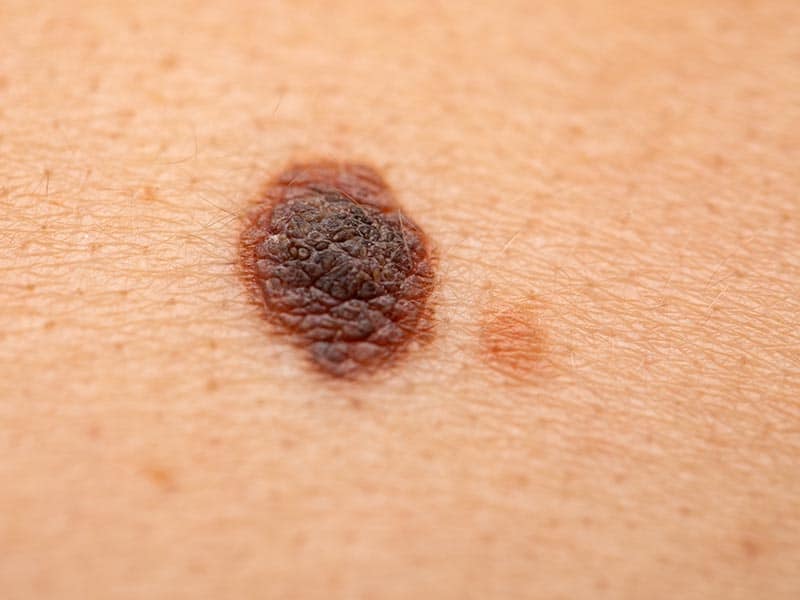
REQUEST A CALL BACK
Arrange a consultation with one of our expert dermatologists today.
WHAT CAUSES SKIN CANCER?
Exposure to sunlight is the most well known cause of skin cancer. The number of cases of skin cancer is on the rise, despite years of warning against excessive tanning and the dangers of sunbeds. People with paler skin (Fitzpatrick skin types 1-3) are at a higher risk of developing skin cancer as they are more vulnerable to damage from the sun’s ultraviolet (UV) rays.
You are also at an increased risk of skin cancer (melanoma), if you have a large number of moles. It is important to monitor any unusual shaped moles which are over 5mm. If you have concerns about a mole on your body, book in a mole check with one of our experienced consultants.
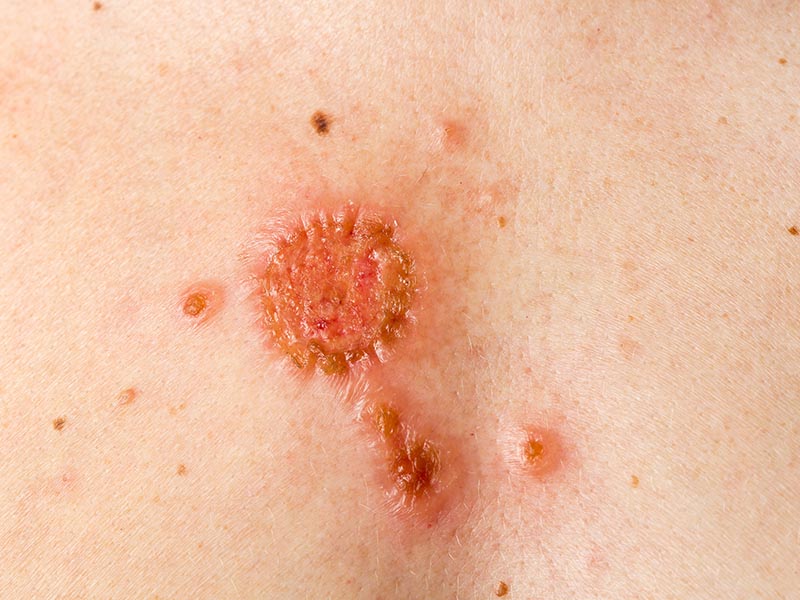
WHAT ARE THE SYMPTOMS OF SKIN CANCER?
Skin cancer is most likely to develop on areas of skin which are regularly exposed to sun and unfortunately it can be tricky to spot due to its many forms. Areas of skin cancer may feel itchy and bleed occasionally, look waxy or like a pale non-healing scar. They can feel tender to touch, have a hard, often red or pink scab, or make the skin raise. Changes to existing moles or the development of new moles can also indicate skin cancer. If you have an area of skin or a mole you are worried about, book a consultation with one of our consultant dermatologists today.

HOW CAN SKIN CANCER BE TREATED?
The treatment you are offered will depend on the type of skin cancer you have, the location of the lesion and how developed it is. You will be required to attend a consultation with a consultant dermatologist who will assess your skin and advise on the best course of treatment.
Melanoma skin cancer is often identified through checking and monitoring moles. At Stratum Dermatology clinics we offer single mole checks, full body mole checks or mole mapping depending on the volume of moles you have. During a mole check, an expert will examine the mole using a dermascope to identify if it needs further investigation or removal. Mole mapping is advised for those who have a lot of moles on the body and works by creating a permanent record of your moles using the cutting edge skin-imaging technology, the FotoFinder system. Any new or changing moles can be easily identified which makes mole mapping a highly accurate tool in the development of skin cancer. If moles are checked and deemed to be of concern, we offer safe and effective mole removal treatment in our clinics.
Common Skin Cancer Treatments include:
- Micrographic Surgery (MOHS)
- Surgical excision
- Curettage and electrocautery
- Cryotherapy
- Anti-Cancer Creams
- Photodynamic Therapy (PDT)
If it is identified that you do have skin cancer and treatment is needed, Stratum Dermatology clinics offer a range of treatment options which will be discussed with you during your consultation. Skin cancer can be removed surgically under local anesthetic with the most common dermatological surgeries to treat skin cancer being MOHS, Excision, and Cutterage and Electrocautery. There are also a number of non-surgical skin cancer treatments on offer at Stratum Dermatology Clinics, these include photodynamic therapy, topical creams and Cyrotheraphy.
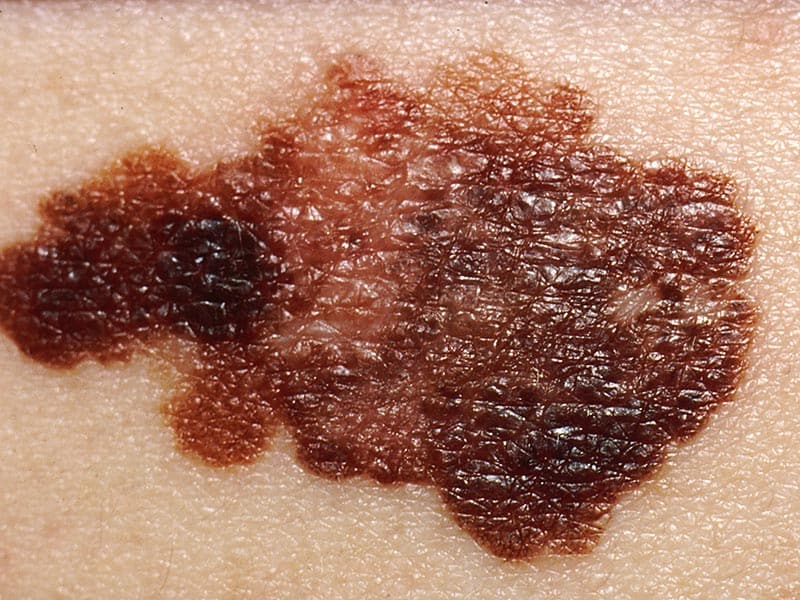
REQUEST A CALL BACK
Arrange a consultation with one of our expert dermatologists today.
WHY TREAT YOUR SKIN CANCER AT STRATUM DERMATOLOGY CLINICS?
Protecting your skin is, of course, always the best course of action, but if your skin has already been damaged by the sun and presents some changes that you find worrying, make sure you seek professional advice. If you are looking for a private skin cancer clinic, Stratum Clinics with clinics and dermatologists across London, in Oxford, Canterbury and Cheltenham can offer you a consultation and if necessary, treatment.
Our chief clinical director has undertaken and published research on the subject, and it remains one of his specialist areas. The earlier you seek treatment, the more likely you are to have a better result.
If you are looking for a private skin cancer clinic, Stratum Dermatology Clinics have clinics nationwide offering mole checking, mole removal and skin cancer treatment. Here at Stratum Dermatology Clinics, we understand how skin conditions can negatively impact your life. We help hundreds of patients each month and our dermatology experts have a wealth of experience in the assessment, treatment and management of all types of skin cancers.
Working with leading experts in the field of dermatology, we pride ourselves on our successful and comprehensive range of treatments. Stratum Dermatology Clinics are regulated by the Care Quality Commission, are part of the British Association of Dermatologists and are top rated by patients on Doctify. Both Stratum Dermatology Clinics and the consultants who work here are recognised by the main healthcare insurance providers.
HEAR FROM ONE OF OUR SKIN CANCER PATIENTS
“I was treated at Stratum clinics for skin cancer using surgical excision. The consultants and surgeons were friendly and professional throughout and the aftercare and support I received were second to none”
FREQUENTLY ASKED QUESTIONS
Is skin cancer hereditary?
Skin cancer is not hereditary in the sense that it is passed down through a gene. However, skin type does run in families so those more likely to develop skin cancer are often in the same family.
Who is most at risk of getting skin cancer?
Men are more likely than women to develop skin cancer and it is more common in the elderly.
What factor sun cream should I use?
It is recommended to use a high factor of sunscreen no matter your skin type. SPF30 with a 4-star UVA rating during the summer is recommended for those with paler skin to stop burning but also to help prevent wrinkles and sunspots in those who don’t burn as easily.
Do sunbeds cause skin cancer?
Research shows sun beds are a significant risk factor in skin cancer.
How can I prevent developing skin cancer?
Protecting your skin is, of course, always the best course of action. The easiest ways you can do this include:
- Wearing a waterproof, high level of SPF protection when in the sun
- Use a daily moisturiser with SPF protection
- Avoid the sun when it is at its strongest during the day
- Wear a hat when in the sun
- Sit in the shade
REQUEST A CALL BACK
Please fill in this form and one of our team will give you a call back to arrange a consultation with one of our expert dermatologists.

